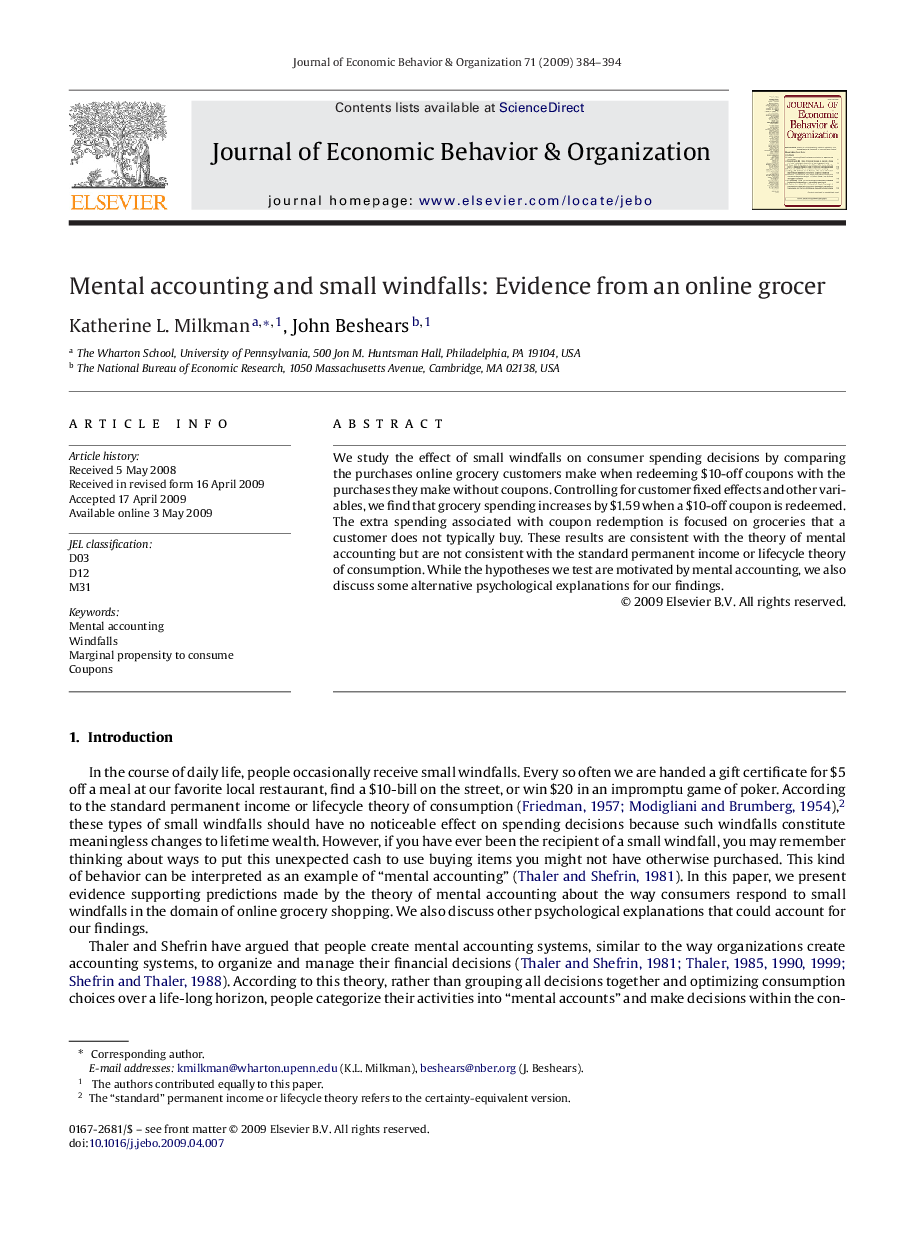| Article ID | Journal | Published Year | Pages | File Type |
|---|---|---|---|---|
| 884267 | Journal of Economic Behavior & Organization | 2009 | 11 Pages |
We study the effect of small windfalls on consumer spending decisions by comparing the purchases online grocery customers make when redeeming $10-off coupons with the purchases they make without coupons. Controlling for customer fixed effects and other variables, we find that grocery spending increases by $1.59 when a $10-off coupon is redeemed. The extra spending associated with coupon redemption is focused on groceries that a customer does not typically buy. These results are consistent with the theory of mental accounting but are not consistent with the standard permanent income or lifecycle theory of consumption. While the hypotheses we test are motivated by mental accounting, we also discuss some alternative psychological explanations for our findings.
